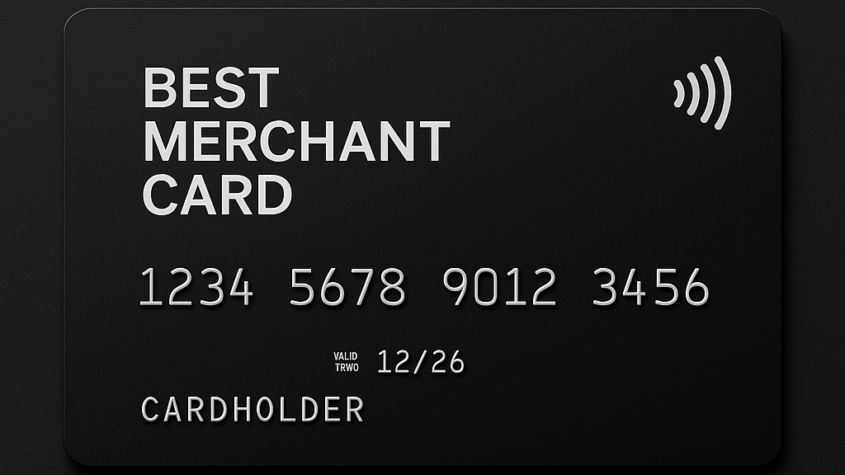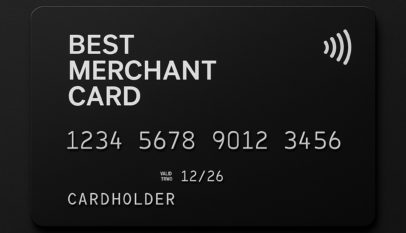Best Merchant Credit Card Processors: A Comprehensive Guide to Choosing the Right Fit for Your Business
Choosing the right credit card processor is crucial for business success. The best merchant credit card processors offer competitive rates, reliable customer support, and seamless integration with existing systems. By understanding the options available, business owners can select a processor that meets their specific needs and enhances their sales capabilities.
Many processors offer unique features that cater to different industries. For instance, some may provide advanced security measures, while others focus on mobile payments or e-commerce solutions. The right choice can improve cash flow and customer satisfaction.
Exploring the top options in the market allows businesses to make informed decisions. By evaluating features, fees, and customer feedback, they can find the processor that aligns with their goals and enhances their operational efficiency.
Understanding Merchant Credit Card Processing
Merchant credit card processing involves several key components that facilitate transactions between customers and businesses. This section outlines how credit card processing works, explores different types of merchant service providers, and examines pricing models associated with these services.
How Credit Card Processing Works
Credit card processing begins when a customer swipes their card or enters their information online. The transaction request is sent to the payment processor, which establishes a connection with the cardholder’s bank for authorization.
Once the funds are confirmed, the payment processor communicates this approval back to the merchant. The funds are then typically transferred to the merchant’s bank account within a few business days. This entire process occurs in seconds.
Key entities involved include the merchant bank, payment processor, and card networks such as Visa and MasterCard. Understanding these steps ensures businesses can effectively manage transactions and customer experiences.
Types of Merchant Services Providers
Several types of merchant service providers cater to different business needs. These include traditional banks, independent sales organizations (ISOs), and online payment platforms.
Traditional banks offer comprehensive services including credit card processing, merchant accounts, and business loans.
ISOs might provide more competitive pricing and flexible contract options compared to banks.
Online payment platforms such as PayPal and Square focus on e-commerce and mobile payments, appealing to businesses seeking a digital-first approach. Each option has unique advantages, so selecting the right provider requires careful consideration of business goals and customer interactions.
Pricing Models for Credit Card Processing
Pricing for credit card processing typically falls into three main models: flat-rate, interchange-plus, and tiered pricing.
- Flat-rate pricing charges a single percentage on all transactions, which simplifies budgeting.
- Interchange-plus pricing provides transparency by separating the interchange fees charged by card networks from the processor’s markup.
- Tiered pricing classifies transactions into different categories, each with varying rates, which can lead to unpredictable costs.
Choosing the correct pricing model is essential for optimizing costs. Merchants should evaluate transaction volumes and average sale amounts to identify the most cost-effective option.
Top Merchant Credit Card Processors
When selecting a merchant credit card processor, key factors such as features, security, and customer support play a significant role in decision-making. Understanding these aspects can help businesses choose a provider that meets their specific needs.
Features of Leading Processors
Top credit card processors offer a range of features designed to streamline transactions and enhance customer experience. Common features include:
- Transaction Reporting: Insights into sales trends, inventory management, and performance analysis.
- Mobile Payment Processing: Compatibility with smartphones and tablets for convenience in various environments.
- Multiple Payment Options: Acceptance of credit, debit, and digital wallets, catering to diverse customer preferences.
- User-Friendly Interfaces: Easy-to-navigate dashboards for managing transactions and tracking financial data.
- Integration Capabilities: Support for various e-commerce platforms and point-of-sale systems.
These features contribute to operational efficiency for businesses and improve customer satisfaction.
Security and Compliance Standards
Security is a top priority for credit card processors. Leading providers adhere to strict compliance standards, such as PCI DSS (Payment Card Industry Data Security Standard). Key security measures include:
- Encryption Technologies: Protecting sensitive data during transactions to prevent fraud.
- Tokenization: Replacing card information with unique identifiers, reducing the risk of data breaches.
- Fraud Detection Tools: Real-time monitoring systems that identify suspicious activities and anomalies.
By maintaining these stringent security protocols, processors help businesses safeguard customer data and build trust.
Customer Support and Service Quality
Excellent customer support is crucial for businesses working with credit card processors. Quality support includes:
- 24/7 Availability: Assistance whenever issues arise, minimizing downtime for merchants.
- Multiple Contact Channels: Options such as phone, email, and live chat offer flexibility in reaching support teams.
- Knowledgeable Representatives: Trained staff providing accurate, helpful information to resolve issues efficiently.
Having responsive and well-informed support can significantly enhance the experience for businesses utilizing credit card processing services.
British Virgin Islands Company Registry Explained: Key Facts and Procedures
The British Virgin Islands company registry is a centralized system that maintains detaile…













